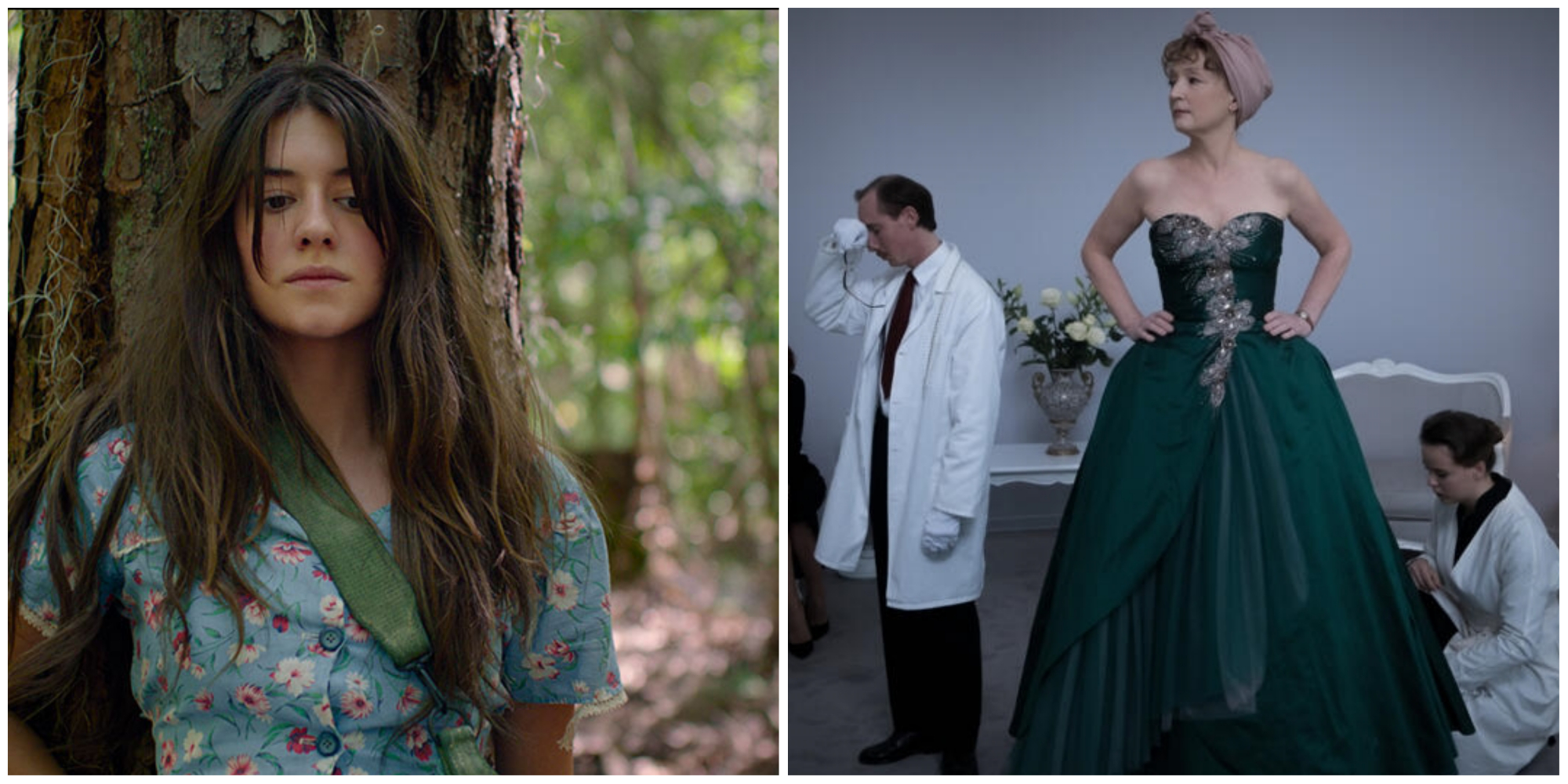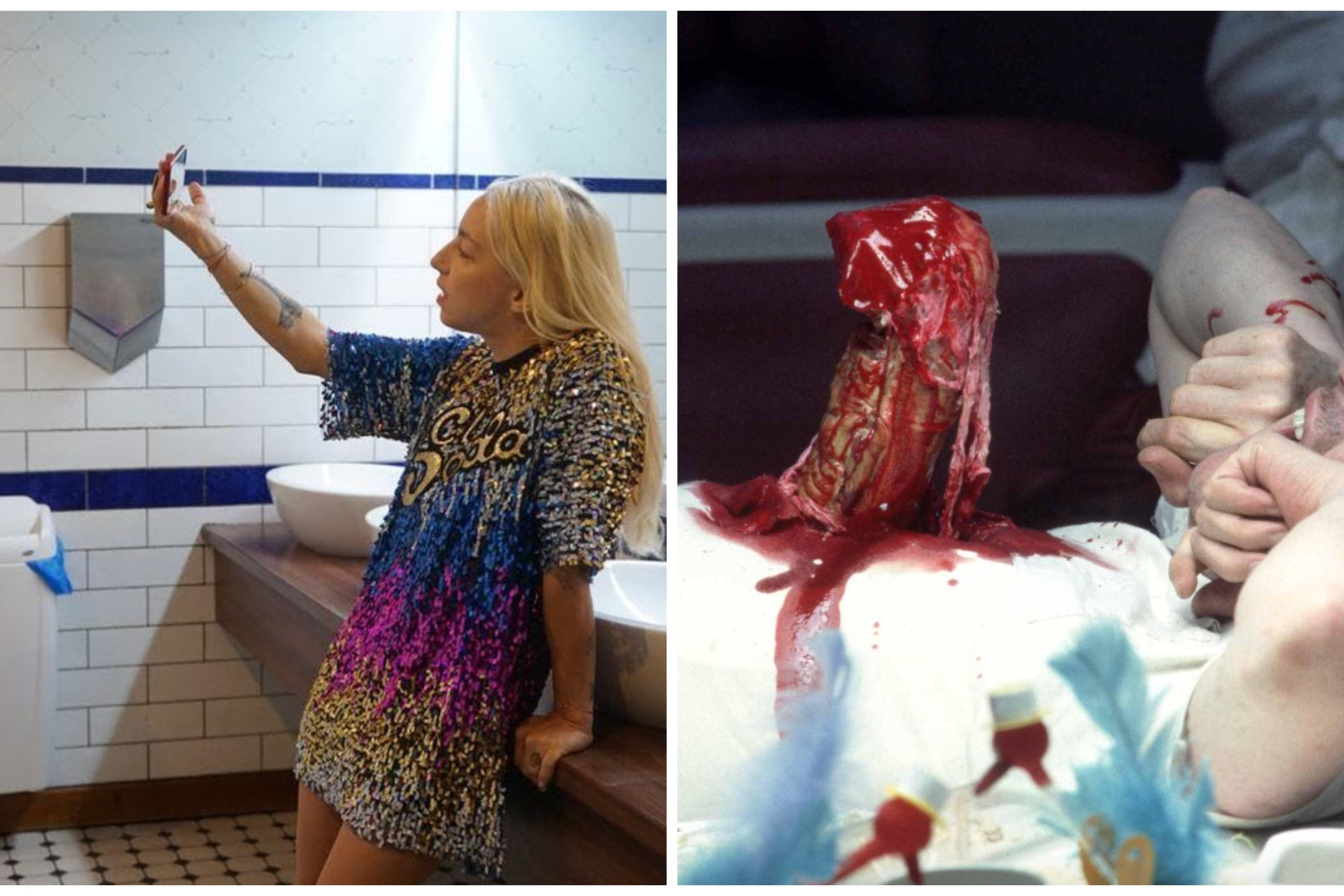Ah, what I wouldn’t do for Lesley Manville? Well, I wouldn’t go see the movie where she abducts Diane Lane and Kevin Costner’s grandson (though as I type that out I really have to ask myself why). Manville maybe delivered maybe my all-time favorite movie monologue as W.S. Gilbert’s obliging and overlooked wife Kitty at the close of Mike Leigh’s Topsy-Turvy. (You should obviously see all the Mike Leigh movies she’s in because you should see all the Mike Leigh movies period.) And she occupied the most ambiguous point in the triangle of power at the center of Phantom Thread. So why not sample Mrs. Harris Goes to Paris, which seemed at worst like a cute little quirky Britcom for the senior-discount set? Anyway, pointing to the internal rhyme in the title might help me finally teach Midwesterners how to pronounce my name.
And cor blimey if my Anglophiliphobic ’eart weren’t charmed. For those unfamiliar with Paul Gallico’s 1958 novel or the 1992 Angela Lansbury TV adaptation (it’s me, I’m those), Ada Harris (Manville) is an aging London charwoman. Her husband has been MIA since the war, but she clings to the belief that he’ll come back till the government confirms otherwise. By day, she babies her clients—a gent who’s always exiting the flat with a different young “niece,” a would-be starlet as needy as she is buxom, and an aristo cheapskate who won’t settle her accounts. For fun, she attends dances with her pal Vi (Ellen Thomas, laying the West Indian accent and protective friendship on a little thick) where they commiserate about their invisibility and wonder if life has passed them by.
All that changes when Ada spies a Christian Dior gown in a client’s bedroom. Bewitched, she’s determined to raise the 500 pounds such a frock costs, and a lucky betting spree, a few setbacks, and some helpful strokes of luck later, she’s on a flight over the Channel. The fun really starts here, as a picturesque vagrant guides her through trash-clotted streets (there’s a strike, we’re told, because “en Frahnz ze wehrkehr eez king!”) to Dior, where she strolls in with her wad of cash. Despite reservations, the cash-poor house isn’t about to turn her away when gracious marquis escorts her to a private viewing of the latest collection.
The workers are immediately infatuated with Ada as they go about fitting her for her custom gown. She plays matchmaker to a Dior accountant (Lucas Bravo, in bespectacled Clark Kent mode) and a young model (the ridiculously pretty Alba Baptista) who unexpectedly bond over their love of Sartre and talking instead of kissing. (Ada mistakes Being and Nothingness for a murder mystery and tells the model her crush reading Nosey—and I swear both jokes land.) Still not everyone is beguiled. As the supercilious Dior office manager, poor Isabelle Huppert goes through the motions, basically responding to how Mrs. Aitch turns the fashion house upside down by sputtering the couture equivalent of “Les chiens ne peuvent pas jouer au basket!” (Her hair looks great though.)
None of this would work without Manville’s genuine charm. The dress designs, gorgeous enough to begin with, seem otherworldly as we look through her eyes. And Ada could easily come off as an annoying clod, inserting herself where she doesn’t belong, but her sense of entitlement feels truly egalitarian: We’re in an era here where “My money is as good as anybody’s” still had a slightly revolutionary ring to it. She also conveys the pathos of someone who’s so good at helping others she’s regularly exploited. And she looks fantastic in Dior.
I don’t want to oversell this. As fantasies go, Mrs. Harris is a nostalgic one. As the upper classes coast on credit and undeserved goodwill, the thrifty rising middle classes know the value of good hard cash, leading to the democratization of high fashion. Turns out that was not the answer to all our problems! But you know what they say: Nothing’s too good for the working class. And if I’m a sap for wanting to watch (imaginary) good things to happen to (imaginary) good people, what are ya, some kinda sadist or something?
Where the Crawdads Sing is a different kind of fantasy—of poetic teen abandonment, with all the requisite pop-gothic tinges. Delia Owens’s much-loved book may not be strictly YA, but its scenario is pure moody adolescent wish fulfillment. (I can absolutely see producer Reese Witherspoon and soundtrack contributor Taylor Swift bonding over it.) Raised in a cinematographer’s dream of a North Carolina marsh, a young girl named Kya (Daisy Edgar-Jones) is gradually abandoned by her family members, one by one. In her isolation she begins to beautifully sketch the nature that surrounds her. A cute boy teaches her to read. A hornier cute boy teaches her something even better. She suffers exquisite heartbreak. The dismissive townsfolk who call her “marsh girl” accuse her of murder. But does she rise above it all? As sure as the glass slipper fits the right foot, my friends.
With the eyes of a Disney princess and the name of a British socialite, Edgar-Jones is someone only the movies could cast as an everywoman, whose prettiness we’re meant to accept as plainness for the sake of narrative convenience. She has a bad habit of being better than her starring vehicles. To the extent that the TV adaptation of Sally Rooney’s Normal People didn’t devolve into a flat teen romance, it was Edgar-Jones who brought the nuance. In the kinda fun, kinda dumb cannibal dating nightmare Fresh, she showed her skill at grounding a silly story in some semblance of credibility. Where the Crawdads Sing takes advantage of that gift.
The movie feints at addressing class and snobbery: After young Kya shows up to school one day with no shoes, she so ashamed she never returns. But it’s really another tale of an uncool teen outsider who must prove she’s secretly better than everyone. Essentially she’s placed on trial, accused of killing one of the cute boys, because everyone resents how special she is. And every time the film threatens to become an engaging (if simple) story of an abandoned girl who raises herself in the wild, we’re dragged back to a cornball courtroom drama (which closes with a ridiculous twist). Two great character actors, David Straithairn and Garret Dillahunt, are wasted as “kindly country lawyer” and “drunk dad,” respectively. And no amount of acting can add a third dimension to the kindly Black couple (Michael Hyatt, Sterling Macer Jr.) who own the general store and serve as Kya’s protectors.
I suppose the source material is to blame, though I’m not about to visit the library to find out. Especially now that the film’s release has been slightly overshadowed by the real drama of author Owens, who’s wanted for questioning in the 1995 murder of a Zambian poacher. (Good thing the movie isn’t better or I might have to look into that controversy closer.) But it’s all just a reminder that sometimes I really hate “plot.” Don’t get me wrong: I love when stuff happens in movies, especially when it’s stuff I didn’t expect to happen. But I hate when something big happens out of a sense of narrative obligation. There has to be a murder in Where the Crawdads Sing, because it’s one of those movies that don’t believe human lives matter unless one of them is lost.





